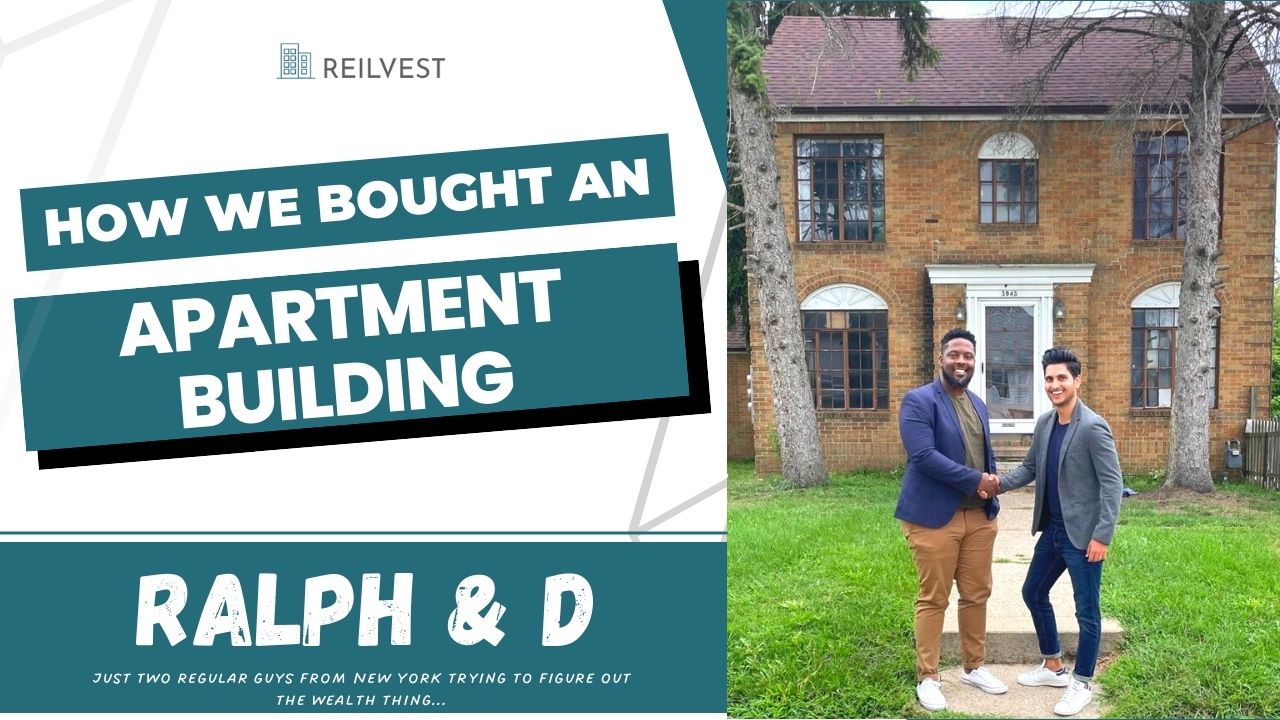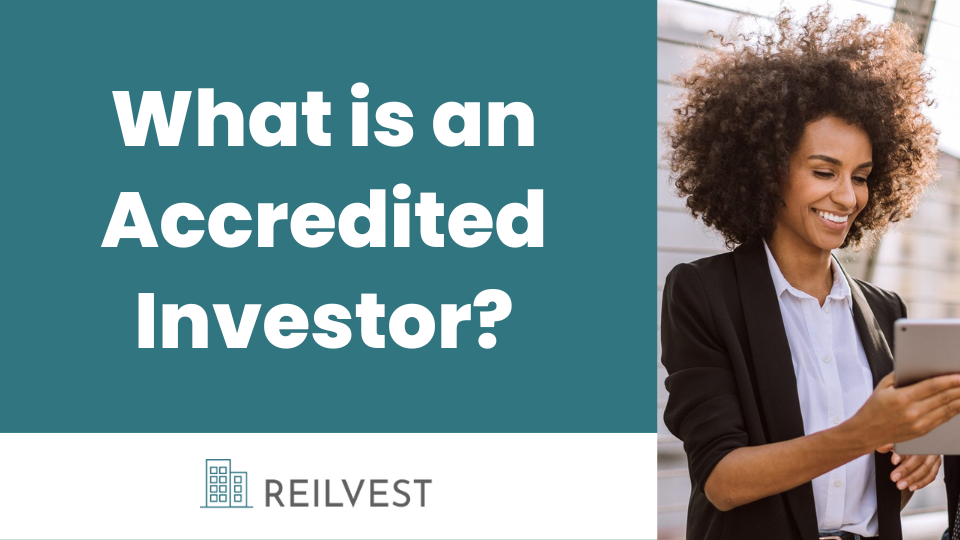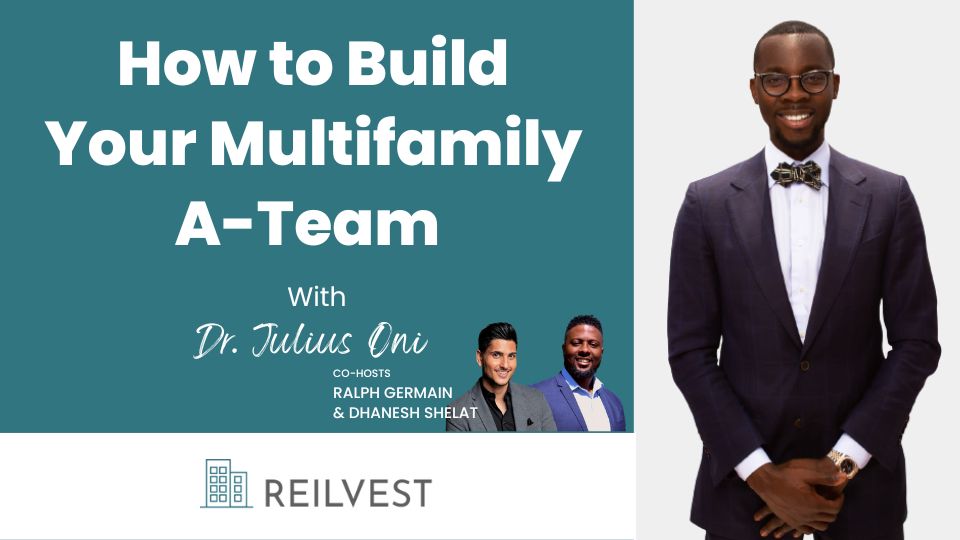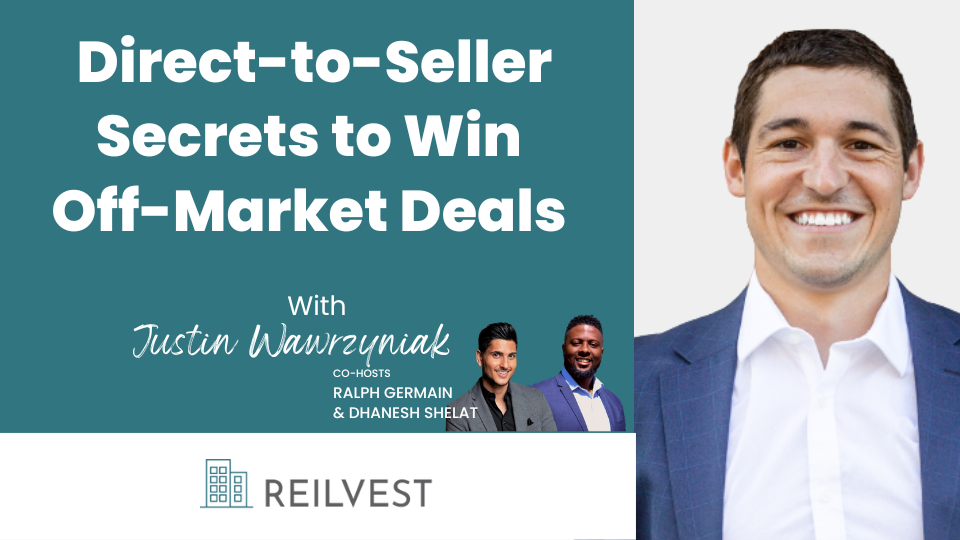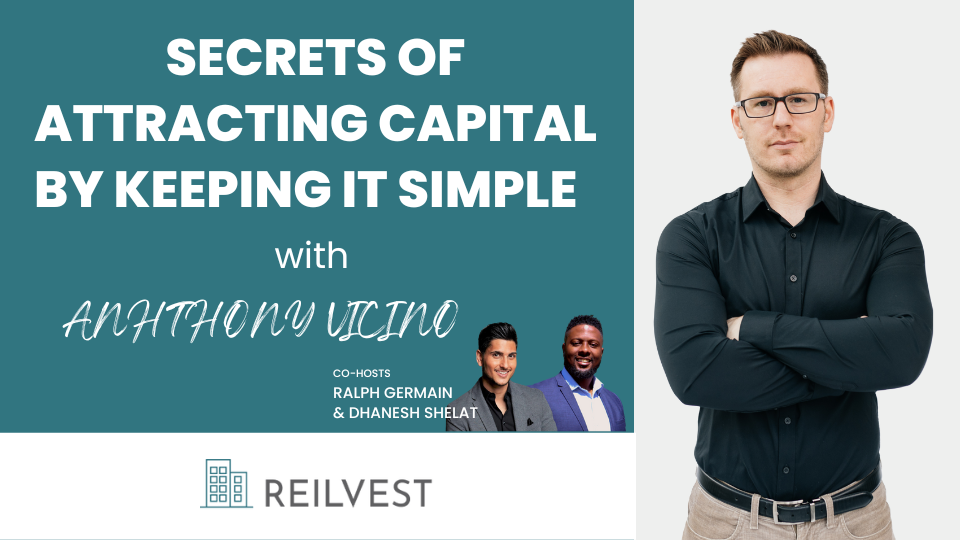Ralph and Dhanesh purchased an apartment building in Ohio despite them being based in New York City.
In the video below they go through how they found the deal, the steps involved with closing and financing the property, as well as other key things they’ve learned along the way. Check it out:
TRANSCRIPT
Ralph: Welcome everybody! Dhanesh and I wanted to record this video here to spend some time and share a little bit about this last deal we just closed in Toledo, Ohio. It wasn’t an easy one by far, but we wanted to share a little bit about how we found the deal, the steps we took during the closing process and acquisition process, a little bit about the lending, and sort of what we learned in the whole process.
Dhanesh: Thanks. In addition to that, we also want to share a little bit about the market, which is Toledo, Ohio. And why we’re big fans.
Ralph: So, Dhanesh, why don’t we start first by just telling folks sort of how we found this deal?
Dhanesh: Yeah, I think we’ll take a step back on this. I think the first kind of thing that was integral to the deal was having experience in the market. And it’s not just actually kind of investing there, which has helped, but it’s more about the fact that we had a team there. So I’d invested in there for a couple of years, but that’s not necessarily needed. I think that the most critical thing was that we had folk who had that experience. So we built it, and then those critical elements are a broker, an inspector, and a property manager, if I was to name those three fundamental things. And then after that, I think what was super critical was defining our criteria. So we knew that we were looking for multifamily properties of a certain vintage in these particular zip codes. We were able to define that as well as having our cash flow benchmarks. We typically aim for at least 1.5% rule. So gross income being the purchase price. Once we have that defined, that really helped us when we had those conversations with brokers to help find the property that we’re looking for.
And then finally, I think, relating to this particular deal, I mean, honestly, having seen it on the MLS, we acted with speed. We saw it there. We knew it kind of fit our criteria, and we were the first—I think we were the first—to reach out to the broker and kind of nail it down. But then another key part in securing this deal was the financing. So, Ralph, I guess you want to share a little bit about how we finance this deal?
Ralph: Yeah, for sure. We actually were looking at a bunch of different financing options and wanted to try to take advantage of the benefits that come along with a credit union. And so some of the difference between, like, a credit union and a traditional bank is that credit unions are actually nonprofit, and so they pass on their profits to their members, whereas banks are for profit, and their profits are passed on to their investors. And so, because of that slight nuance, credit unions can sort of lend on better terms than traditional banks, but they also have some requirements in order to be a member, and not everybody can qualify. So one of the things I did was go on Facebook, and I went to a bunch of Toledo investing groups and just sort of wrote a comment looking for a referral for a great credit union that works with out-of-state investors. And I got a bunch of referrals, and I think I spent about a few hours just calling about 20 different credit unions in Toledo, even to the point where we went to Toledo. I landed at the airport, and I had a bunch of voicemails from a bunch of people that I was returning their phone calls.
But we dug and a lot of them didn’t work with us. But we found one credit union that was able to work with us because Dhanesh already had property in Toledo, and they were super great. We got 20% down, as opposed to traditional 25% down. We got a great rate that was locked in for 90 days. And at the time of this recording and at this time in the market, rates are really just climbing pretty fast. And so to be able to lock in a rate for 90 days is unheard of. Most banks usually do this for about 30 days, and then you have to pay for subsequent rate locks. But a great credit union, their fees were very minimal, which is another benefit of financing through a credit union. So all of those savings on the financing side really help fuel the cash flow on this deal. So that’s another great thing about using Facebook to network with people, but also, doing the work of finding the best financing to piece the whole deal together. And we learned a lot of lessons on this property in closing this one. So, Dhanesh, why don’t you share maybe a couple of things that were a couple of lessons that you’ve learned closing this deal.
Dhanesh: Yeah. Thanks, Ralph. I think there are two things that issue come to mind. I think one of the things I was hesitant for the longest time was actually visiting the market. So either having a corporate job and you get busy and so forth, once you have a taste of investing out of state, you think, okay, I never thought I had to visit the market because honestly, right? I mean, I don’t know my way around a hammer at all. I know more about hair product than I know about a hammer and nail. But honestly, it was something that was encouraged by one of our advisors, and we were super, super glad that we did end up visiting the market. A couple of things to write is, firstly, to really get a feel for the street-by-street kind of feel for the market. And then the next thing is to really build those in person relationships more than, I think, our trip to Toledo. If it taught us anything, it was the power of relationships. And it’s true in any business, but just really seeing that literally, it can be the difference between you getting a loan or not. If you’re able to speak to a particular lender in person because the decisions are made more on the individual. It’s super critical that the banker gets to know you. Banker or lender gets to know you. And then secondly, I’d say, as you mentioned, referrals. I think referrals were super, super key. And again, I have a digital marketing background. And while I love reviews, Google reviews and things like that, to help find potential partners or vendors, etc., having an actual referral from someone is super invaluable. Or if you start hearing from other folks within the market that this particular vendor or partner is being continued to be recommended, that’s a sign that, you know what, these folks are legit. So, yeah, those are two things, Ralph. And then I guess, Ralph, what about you? What would you say are some of the most important kind of lessons that you learn?
Ralph: Yeah, for sure. I think everything you said totally makes sense. I’ll just reiterate knowing your market in another facet of knowing what’s, like, typical what’s normal in that market in terms of things the seller will cover or things you’ll cover. Knowing as well, having a property manager that you can rely on to sort of ask questions throughout the process on what is normal in that market. We had some things come up with a security deposit and evictions, and a tenant was on some kind of COVID assistance.
So knowing the market, but also having someone, a property manager that also knows the market better than you and sort of relying on them and leaning on them. And then the second thing I would say is being able to close on the deal.
So I do some wholesale selling, and I know what it’s like when you have a buyer that they say they’re going to close, and then they end up backing out. And I’m sure realtors and agents can relate to that as well, that you have a buyer and they’re supposed to close on the property, and then they back out. So, underwrite the deal, know your numbers, and make sure that you deliver. If you get the deal on the contract and the numbers make sense to you, then make sure you do everything on your part to close the deal.
And the best way to be able to do that is to make sure you have a solid business plan, to know how you’re going to add value to this property, how you’re going to raise the income. And so, Dhanesh, why don’t we talk a little bit about our business plan with this particular five-unit property?
Dhanesh: Yes. Thanks. I think that’s a great segue. So one of the key kind of things that we want to start with was there’s some kind of deferred maintenance with this property. And the priority, I think, as business owners, you’ve got to think of this we think of this deal as a business entry, because that’s what you are. You’re buying a little business. And your customers in this regard are your tenants. Your residents or tenants. And we really do want to do our best to make it a safe and comfortable place for them to live. So there were some deferred maintenance on the property, so our primary sort of concern was addressing that ASAP, so one of which was plumbing. We had a leak in the basement which was originally for a washer dryer, and in a particular market in Toledo, water is relatively expensive to all the costs. So again, learning from my single family when I purchased properties, and there’s been a delinquent bill being hit with that welcome to your new property is not great. So that was something that our property manager was aware of doing the inspection and that coming up. And she was like,
you know what? We need to address this ASAP. So within a couple of hours of our ownership, she’d kind of gotten that resolved. The next thing was working with tenants that had been delinquent for some time. So we kind of wanted to offer kind of three options. First, being for them to get caught up if they rent. Second one is the cash for keys. So what we do is we would offer them a financial incentive to move out within a certain time period. And forgo all the delinquent rent that they owe previously. And then our final option, if we can’t come to a resolution with these particular residents, then our plan is to move forward with an eviction property once. So this particular property once it’s been properly stabilized, it should be a really good deal from a cash flow perspective. And this market in particular.
Ralph: Yeah. The market itself is a really great market. And one of the things Dhanesh and I went there to really explore the market, which is another key thing if you’re going to invest in the market. But particularly the Toledo market, the Midwest market, they’re not really high appreciating market like some of the sunbelt markets, like Texas and Florida and the Carolinas, but Toledo in particular is a very high cash flow market. If you get a good deal, you underwrite a property and manage the deal properly. It’s a high cash flow market. But going to Toledo we learned so much. We didn’t know this, but the jeep headquarters in Toledo, it’s been there since I believe World War II. And every year they have a huge Jeep Fest. And I think last year it’s around 3000 Jeeps from across the world all came to Toledo.
Dhanesh: I didn’t know that, Ralph. Honestly, I don’t know single families for a while before we visited.
Ralph: Yeah! it’s insane, Amazon has a warehouse in the center of Toledo. That’s about 2.8 million sq ft. Owens Corning a huge company, it’s been around since 1930’s. Publicly train company. They manufacture fiberglass and insulation materials. They did it like 8 billion revenue last year alone. Their headquarters is also in Toledo. Remember we went that cruise, networking cruise. And met a woman who moved to Toledo from Toronto, and I asked her why she moved, and she said it was for Owens Corning. She works for Owens Corning. And everybody kind of knows if you want to get ahead in the company at some point you have to move to Toledo because that’s where the headquarters are, that’s where most of the jobs are. And that was just a great anecdote
Dhanesh: The Toledo Queen Ralph. She’s amazing.
Ralph: Yeah. And then another fun fact, too. In 2021, Yahoo rated Toledo as the number one city to own investment property. Again, we know that the key is if you’re an investor, you want to be in a great appreciating market, but you also want to sort of balance that by being in a market that maybe doesn’t have that high of an appreciation rate. But you’re going to have cash flow. So you’re not tied up waiting for 3,4,5 year hold to get your return on investment. But if you’re in a market like Toledo. You’re gonna cash flow from day one and you’ll be able to sort of balance out your portfolio.
Dhanesh: Yeah. Thanks, Ralph. Yeah, I was just going to add, just having a recent conversation with a broker just now, and he was saying, it regularly appears in the top five investor market variety of this, which again, you learn more and more as we’re getting more comfortable with the market. It’s one of the few markets where you can still get that 1.5% over 1% rule. I think typically going to the 1% rule. Taught in BiggerPockets and all the rest of real estate schools. But yeah, it’s just one of the few markets where you can achieve that kind of puppeteered cash flow benchmark. But also, I think what’s key is that it’s without too many challenges. I think that’s the key thing where sometimes I think some investors have challenges when they invest in areas or markets that can have those cash flows, but at the same time, you’ve got to be able to collect that cash flow. And I think that’s what I really like about the fact that it’s just solid, hard working, blue-collar Americans pay their bills and rent. But for the most part, it’s been consistent. I said during COVID I don’t believe I had one delinquency. So that was, again, another indication. And to build that confidence in Toledo and another market space around it.
Ralph: And also, Toledo is pretty well known. That Toledo has virtually no natural disasters, where I said no hurricanes, no Earthquakes, you know a little bit of blizzards here and there, but I believe their last tornado was like sometime in the 60’s. So its like from a climate perspective it’s also like a really neutral place to live and invest in. Why don’t you share it with how folks can get in touch with us if they’re interested about learning more about the Toledo Market or you know more about real investing what we’re doing.
Dhanesh: Yeah, thanks. So you can head over to Reilvest.com if you haven’t already, and you can download there. We have a free guide to get started with investing in real estate as well as a bunch of other resources. And then you can also learn how to partner with us as well.
Ralph: Thanks for watching, everybody.
Dhanesh: Cheers!
If you’re ready to start your investing journey, we invite you to join the Reilvest Investor Club today!
Disclaimer: The views and opinions expressed in this blog post are provided for informational purposes only, and should not be construed as an offer to buy or sell any securities or to make or consider any investment or course of action.

